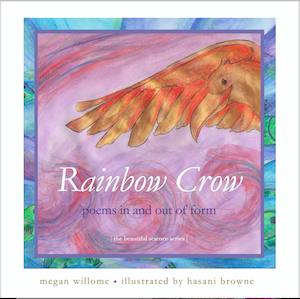The night is darkening round me, by Emily Brontë
Many people say the moment they first confronted absolute darkness was in a cave, when the guide briefly turned out the lights on a tour. My own darkest moment occurred about 45 minutes from my house, doing an interview at Putman Mountain Observatory for an article about the preservation of night skies. In near-total darkness, except for the Milky Way, I felt small and a little scared. I also wanted to sit out on the front porch step and watch the dark sky until dawn’s early light.
The night has been steadily darkening ’round us since the summer solstice. But on the first Sunday in November most of the United States accelerates the night with the time change, when we Fall Back. I think this is the loveliest time of the year, and not only because the evening hours are already filled with tiny twinkling holiday lights. But also because I love the darkness of my early morning walks. I wonder if Emily Brontë loved those hours too.
The night is darkening round me
The night is darkening round me,
The wild winds coldly blow;
But a tyrant spell has bound me,
And I cannot, cannot go.
The giant trees are bending
Their bare boughs weighed with snow;
The storm is fast descending,
And yet I cannot go.
Clouds beyond clouds above me,
Wastes beyond wastes below;
But nothing drear can move me;
I will not, cannot go.
Sometimes this poem is titled “Spellbound,” which makes me like it even more. “Spellbound” is a word that means several things at once. We can be bound by a spell; and we can be fascinated, unable to avert our eyes. This is a poem whose spell I want to fall under.
So I made up motions.
I learn my poems outside, which influences how I learn them — based on what I see and hear from my backyard. The day I started this poem the “Clouds beyond clouds above me” looked like they wanted to be snow clouds, if only it were a little colder. So I gestured up to them, with a flourish of my left hand. Which meant that for the next line I had to flourish down with my right hand to “Wastes beyond wastes below.” So then, of course, I had to choreograph the whole poem.
Stanza 1
Hold your arms around yourself, like you are cold from those “wild winds” and also like you’re bound by that “tyrant spell.” Thus stuck, say mournfully, “I cannot, cannot go.”
Stanza 2
Hold up your arms, like the limbs of “giant trees.” From there, slowly and heavily bend down, down, down, until you are “weighed with snow.” Thus hanging, lament, “And yet, I cannot go.”
Stanza 3
Gesture up to the “clouds above” with a flourish of your left hand. Gesture down to the wastes below with your right hand. Hold both hands outstretched in a Stop sign for “But nothing drear can move me.” And conclude in a Mountain Pose, hands confidently at your sides, and say, “I will not, cannot go.”
The speaker moves from despair to defiance. She moves from can not to will not, from prison to power.
We cannot control the weather on Brontë’s wild moors or in our own backyards. We can’t stop drear things. We can only not allow ourselves to not be moved.
Or to move in dance, in the dark, when no one’s watching.
Photo by Giuseppe Milo, Creative Commons, via Flickr. Post by Megan Willome.
Browse more By Heart
“Megan Willome has captured the essence of crow in this delightful children’s collection. Not only do the poems introduce the reader to the unusual habits and nature of this bird, but also different forms of poetry as well.”
—Michelle Ortega, poet and children’s speech pathologist
- Perspective: The Two, The Only: Calvin and Hobbes - December 16, 2022
- Children’s Book Club: A Very Haunted Christmas - December 9, 2022
- By Heart: ‘The night is darkening round me’ by Emily Brontë - December 2, 2022


L.L. Barkat says
I love this little poem. Can’t remember where, but I read once that it was written while her grandfather was dying. Don’t quote me on that. It was something along those lines. And it gives an interesting additional layer to the poem. (Though I like the layers you found 🙂 )
Megan Willome says
I love poems that never cease revealing their layers, like this one.
Bernd Karwath says
“Emily” (2022)
A movie dedicated
To the imagination
Of a painter who plays the piano,
A pianist full of poetry,
A poetess fond of paradox,
And her eternal love affair
With the powers of the air
On ever clouded moors.
Remember November 1837:
The moments of these lines are yours.
A snowstorm is closing in,
The night right on its heels,
And you see “wastes beyond wastes below”
And, mirrored cold and low,
“Clouds beyond clouds above”,
In a raging wilderness of love,
Embracing slowly darkening hills
That vanish like the breath of ghosts
Behind the veils of distance.
Megan Willome says
Oh, those moors are so poetic!
Thanks, Bernd.